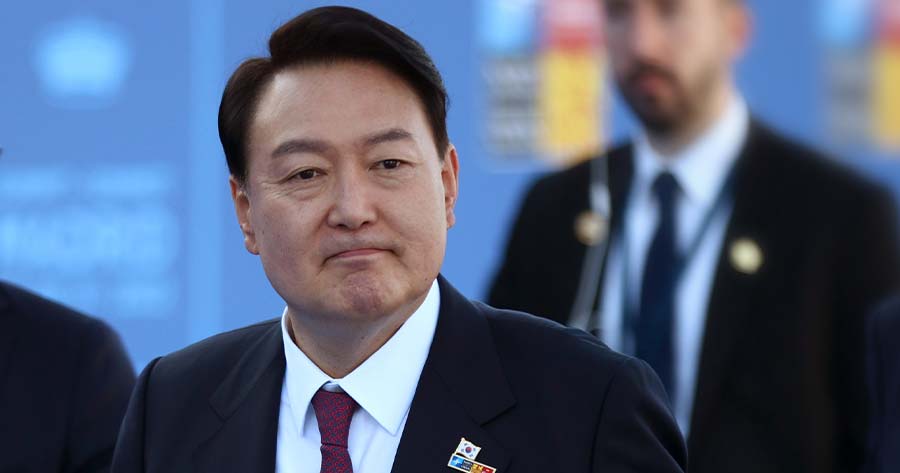South Korean President Yoon Suk Yeol’s decision to impose a one-night martial law on December 3 has sparked a constitutional crisis. Opposition leader Lee Jae-myung responded by calling for impeachment again, stating it was the best way to restore order.
On Thursday, Lee’s Democratic Party, along with five other opposition parties, submitted an impeachment bill against Yoon. The vote, scheduled for Saturday, requires a two-thirds majority to pass. Despite the opposition’s control of parliament, Lee will need support from at least eight members of Yoon’s People Power Party (PPP) to meet the threshold.
This could prove challenging, as the PPP derailed last week’s initial impeachment attempt by boycotting the vote. However, seven PPP members have already expressed support for the upcoming motion, bringing Lee closer to the required numbers.
As for Yoon, he criticized the effort, accusing the opposition of paralyzing the government. He also blamed North Korea for hacking the National Election Commission (NEC), which he claimed contributed to his party’s election defeat last April. Nevertheless, Yoon vowed to fight until the end.
In response, Lee called Yoon’s statement “a declaration of war” against the people and reiterated that impeachment is the most effective way to resolve the ongoing turmoil. If the vote passes, the Constitutional Court will have up to six months to determine whether to remove or reinstate Yoon.
Regarding the North Korea hacking claim, Yoon stated that the National Intelligence Service detected a cyber-attack by the communist-ruled nation last year. However, it refuses to fully cooperate with the investigation and inspection, citing its status as an independent agency.
Yoon claimed the hack damaged the credibility of the April 2024 election, leading to the PPP’s landslide defeat and his martial law decision. The NEC, however, denied any evidence of North Korean hacking, stating they only discussed “security vulnerabilities” with the spy agency.
The NEC further noted that Yoon’s accusations against the election oversight system also call into question the legitimacy of the very system that elected him as president. Back in March 2022, Yoon secured the presidency with the narrowest margin in South Korea’s democratic history.




